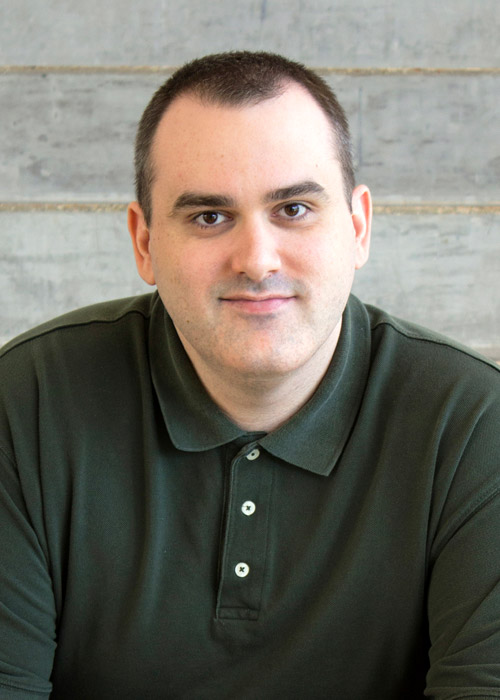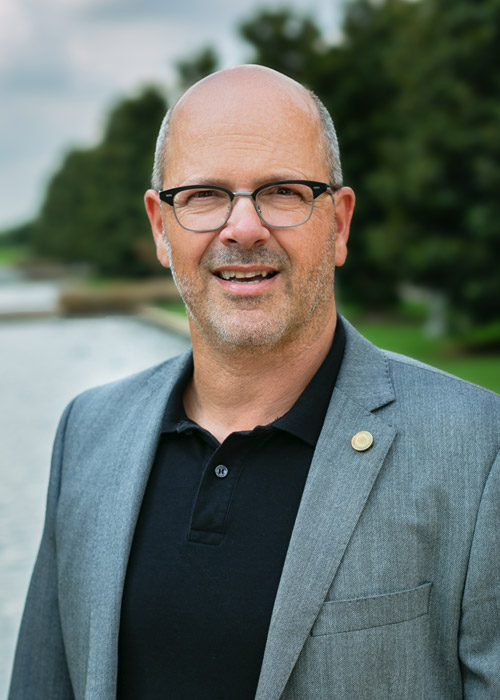ATEC Animation, Games Program Helps Students Reach Next Level
By: Phil Roth | Aug. 25, 2021

As part of an industry that is constantly evolving, the animation and games program at The University of Texas at Dallas has emerged as one of the top programs in the country. National rankings are high, and graduates are filling positions in some of the leading companies nationwide.
“The gaming industry is growing extremely fast. In addition, the skills we teach for game development are used — and often demanded — in architectural visualization, simulation, marketing, film and more. Demand for good employees with these skill sets will continue,” said Tim Lewis, assistant professor of instruction in the School of Arts, Technology, and Emerging Communication (ATEC).
The Princeton Review recently ranked the UT Dallas game design track No. 20 among undergraduate programs and No. 15 among graduate programs. The University’s animation area of study, which recently combined with games, also ranks high — No. 29 in the U.S., according to Animation Career Review.
Lewis said the blended program works well.
Alumna’s Animation Career
As a production coordinator for Wild Canary Animation, Lauren Olinger BA’17 leans on her background in arts, technology and theater to produce “Mira, Royal Detective” on Disney Junior. Read more in the Alumni Link.
“The goal of the program is to ensure that our students exit with the ability to not just be an employee of a company, but to understand the common games-development pipeline and to be able to go out there and create their own games as well,” he said.
Adam Chandler, assistant professor of instruction in ATEC, said the foundational pieces of the program — art, sound, design and programming — are taught from varying perspectives in many of the school’s animation and games classes so students can see how the pieces fit together.
“For example, it’s not just about making a sound. If you know enough about programming to know how the sound will be put into the game engine, then you’re going to make that sound a little bit differently,” Chandler said. “Or, if you’re trying to make some visuals for a game, but you know just enough about game design to know that the player can walk around and look at an object from the other side, you’re going to build your 3D models in a slightly different way.”

“This field is growing so quickly. I see a very bright future for the industry and for our students.”
Sean McComber MFA’14, associate professor and area head for animation and games in the School of Arts, Technology, and Emerging Communication (ATEC)
Not every aspect of the animation and games program is technical. One class that teaches game design uses analog — noncomputer — components to design games.
“Sometimes tools and technology components can get in the way of the thing you’re really trying to teach. With this particular game design class, you could see an object on a table and then start designing a game around it,” Chandler said. “You aren’t relying on a specific technical tool as you come up with an interesting game.”
He said the result of that class is several board games designed by groups of students.
Another aspect of training future game developers is networking.
“What really makes successful game students is when they get together after class or they meet at student groups, such as the Student Game Developer Association at UT Dallas,” Chandler said. “These are places where they build games as a team, have competitions or put on events with industry speakers.
“The ATEC faculty help foster these kinds of communities, because if students are using the skills that we teach in class for outside-of-class activities, then they’re really bringing these skills back into the world, and that’s where the good stuff happens.”

“The goal of the program is to ensure that our students exit with the ability to not just be an employee of a company, but to understand the common games-development pipeline and to be able to go out there and create their own games as well.”
Tim Lewis, assistant professor of instruction in ATEC
Graduates of the animation and games program have gone on to work at major companies that primarily focus on games, including Blizzard Entertainment and Gearbox Software, and those that develop visual experiences for corporations and nonprofits, such as Dallas-based 900lbs.
Tyler Reed BA’18 used his game-design training to secure work on projects such as Call of Duty: Black Ops 4, DOOM Eternal and Disney’s “The Mandalorian” video streaming series. He said the ATEC animation and games program provided a solid foundation, while acknowledging a shifting environment.
“The ATEC professors understood that the industry constantly changes,” he said. “As they taught us important skills, they also encouraged us to look at tools outside of the classroom.”
Just as animation and games have merged at UT Dallas, similar combinations are occurring within the industry, resulting in more employment opportunities.
Sean McComber MFA’14, associate professor in ATEC and area head for animation and games, said game design represents one of the highest areas of growth in the school.
“This field is growing so quickly,” he said. “I see a very bright future for the industry and for our students.”
Roemer Named Interim Dean of ATEC

Dr. Nils Roemer, Stan and Barbara Rabin Professor in Holocaust Studies, has been appointed interim dean of the School of Arts, Technology, and Emerging Communication (ATEC). Roemer also serves as interim dean of the School of Arts and Humanities (A&H) and is director of the Ackerman Center for Holocaust Studies.
Roemer said ATEC faculty and students are excited about the school’s new animation suite, which features tools that include 2D and 3D animation, motion graphics, real-time rendering, projection mapping, augmented reality, virtual reality and 3D printing.
“I see this facility as one that will add to ATEC’s expertise in animation production, creative research and curriculum development,” he said. “Faculty and students can now better showcase animation’s potential as a premier emerging visual-communication medium.”
Roemer arrived at UT Dallas in the fall of 2006 after teaching for six years at the University of Southampton in England. Roemer’s research interests lie in the fields of modern history, with a specific emphasis on Jewish history and the Holocaust. He has a particular interest in cultural and intellectual history. He has led the Ackerman Center since 2015 and was named interim dean of A&H in 2019.
Media Contact: Phil Roth, UT Dallas, 972-883-2193, phil.roth@utdallas.edu, or the Office of Media Relations, UT Dallas, (972) 883-2155, newscenter@utdallas.edu.





